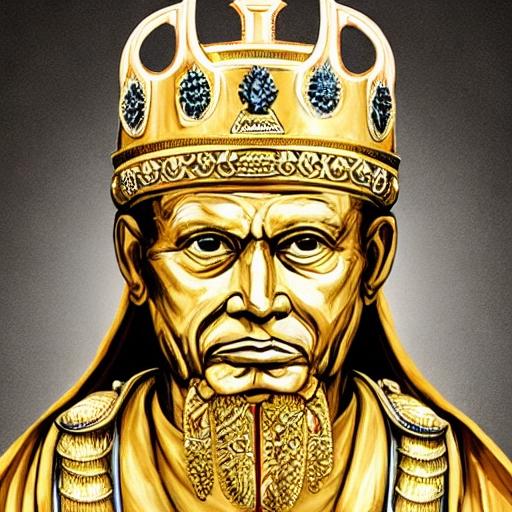
How does death make life meaningful?
Death is a natural part of life and is inevitable for all living things. It is often seen as a reminder of the finite nature of life and can be a powerful motivator to make the most of the time we have. Some people find meaning in life through the relationships they have with others, and the prospect of losing those relationships can make them more precious and meaningful. Others find meaning in their accomplishments and the impact they have on the world, and the knowledge that their time is limited can inspire them to pursue their goals with greater urgency. Still others find meaning in simply experiencing the world and the beauty it has to offer, and the awareness of death can make these experiences all the more poignant. Ultimately, how death makes life meaningful is a deeply personal and individual experience, and different people may find meaning in different ways.
Death can bring us closer to life in a number of ways:
- It reminds us of our own mortality and the preciousness of life: When we are faced with death, it can serve as a reminder of our own mortality and the fleeting nature of life. This can motivate us to make the most of the time we have and to focus on what is truly important to us.
- It helps us to appreciate the present moment: Death can remind us that life is fragile and that we should take the time to appreciate the present moment. By focusing on the present, we can cultivate a sense of gratitude and a deeper appreciation for the beauty and goodness of life.
- It can bring us closer to loved ones: When someone we love dies, it can bring us closer to the people who are still with us. We may feel a deeper sense of appreciation for our relationships and make an effort to strengthen our bonds with those we care about.
- It can inspire us to live a meaningful life: Death can motivate us to live a life that has purpose and meaning. We may be inspired to pursue our passions and make a positive impact on the world around us.
It’s important to note that dealing with death can be a challenging and emotional process, and it is normal to feel a range of emotions such as sadness, grief, and even anger. It can be helpful to seek out support from friends, family, or a therapist as you navigate this difficult time.

Will human beings escape death and gain immortality?
It is currently not possible for humans to achieve physical immortality, as all living beings are subject to aging and death. However, some scientists and philosophers believe that it may be possible for humans to achieve a form of immortality through technological means, such as uploading one’s consciousness into a computer or preserving the brain in cryonic suspension.
However, these technologies are currently in their infancy and are not widely available. It is also not clear whether these technologies would be able to preserve a person’s consciousness or personality in a meaningful way.
It’s important to note that the pursuit of immortality is not without its risks and ethical considerations. For example, if only a select few individuals are able to access and afford these technologies, it could lead to further disparities and inequalities within society.
Ultimately, the question of whether humans will gain immortality is still an open one and will depend on advances in science and technology as well as societal and ethical considerations.
How to be at peace with and accept death
Here are a few suggestions for how to find peace with death:
- Accept that death is a natural part of life: Death is an inevitable part of the human experience, and accepting this fact can help us to find peace with the idea of our own mortality.
- Find meaning and purpose in life: Reflecting on the things that are most important to us and finding ways to live a meaningful and fulfilling life can help us to feel more at peace with the idea of death.
- Cultivate a positive attitude: Choosing to focus on the positive aspects of life and practicing gratitude can help us to feel more at peace with death.
- Find support: Having a supportive network of friends and loved ones can help us to feel less alone and more at peace with death.
- Practice mindfulness and meditation: Practicing mindfulness and meditation can help us to be more present and aware in the moment, which can bring a sense of peace and acceptance.
- Seek guidance from a spiritual or religious tradition: Some people find comfort and peace in the teachings and practices of a particular spiritual or religious tradition.
What is a death cult?
A death cult is a group that is centered around the belief in, or worship of, death. This can take many different forms, such as a belief in the spiritual importance of death, the worship of deities associated with death, or the glorification of death as a means of achieving some kind of spiritual or philosophical goal. Death cults can be found in a variety of cultures and time periods, and they can be motivated by a variety of different beliefs and philosophies. Some death cults may see death as a natural and inevitable part of life, and may seek to understand and come to terms with death as a means of achieving spiritual enlightenment. Others may see death as a means of achieving some other goal, such as power or fame. It is important to note that death cults are generally not considered mainstream or socially acceptable, and that they can be associated with harmful or dangerous activities.
Here are some quotes and perspectives around death
- “Death is not the greatest loss in life. The greatest loss is what dies inside us while we live.” – Norman Cousins
- “To everything there is a season, and a time to every purpose under heaven.” – Ecclesiastes 3:1
- “Death is not extinguishing the light; it is only putting out the lamp because the dawn has come.” – Rabindranath Tagore
- “Death is a natural part of life. Rejoice for those around you who transform into the force.” – Yoda (from Star Wars)
- “Death is simply a shedding of the physical body like the butterfly shedding its cocoon. It is a transition to a higher state of consciousness where you continue to live on.” – Elisabeth Kübler-Ross
- “Death is no more than passing from one room into another. But there’s a difference for me, you know. Because in that other room I shall be able to see.” – Helen Keller
- “Death is the end of a life, not the end of love.” – Mitch Albom
- “Death is not the opposite of life, but a part of it.” – Haruki Murakami
- “The fear of death follows from the fear of life. A man who lives fully is prepared to die at any time.” – Mark Twain
Here is a Zen koan about death:
A Zen master was asked, “What is the meaning of death?”
The Zen master replied, “The cypress tree in the courtyard.”
The student asked, “What does the cypress tree in the courtyard have to do with death?”
The Zen master replied, “The cypress tree is always green, but it is also always dying. In the same way, life and death are always interconnected and inseparable.”
A poem about death
Here is a poem about death:
Death, the great mystery
A door that must be stepped through
Leaving behind the world we know
And all that we once knew
It’s a thought that brings us fear
A journey we must all take
But death is not the end
But simply a path we make
For though our bodies may decay
Our spirit lives on
And death is just a transition
To a place where we belong
So do not fear the unknown
Embrace it with open arms
For death is just a passage
To a life that’s free from harm
Rest in peace, dear one
Your time on earth is done
You’ll be missed, but never forgotten
Until we are all one.
Here is a short story about death:
The day was hot and sticky, and Emily couldn’t wait to get home and take a cold shower. She had spent the day working at the farmer’s market, selling homemade jams and jellies. As she packed up her things and loaded them into her car, she noticed an old man sitting on a bench nearby, fanning himself with a newspaper.
Emily felt a pang of sympathy for the man, who looked exhausted and uncomfortable in the heat. She approached him and asked if he needed anything.
The man looked up at her with a sad smile and said, “I’m afraid it’s too late for that. I’m just waiting for death to come and take me away.”
Emily was shocked by the man’s words and asked him what he meant. The man explained that he had been diagnosed with a terminal illness and had been told he had only a few weeks to live.
Feeling a sudden rush of emotion, Emily sat down next to the man and took his hand. “I’m so sorry,” she said. “Is there anything I can do to help?”
The man shook his head and said, “No, but thank you for your kindness. It’s been a comfort to have someone to talk to while I wait.”
As they sat together, Emily and the man had a deep and meaningful conversation about life, death, and what lay beyond. Despite the sadness of the situation, Emily felt a sense of peace and acceptance that she had never felt before.
When it was time for Emily to go, the man thanked her and said, “I hope you find the happiness and peace that I have found in my final days.”
